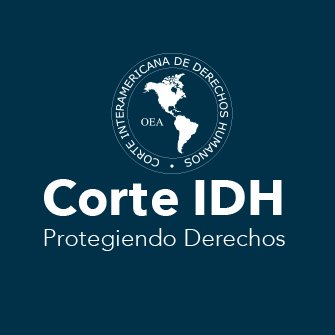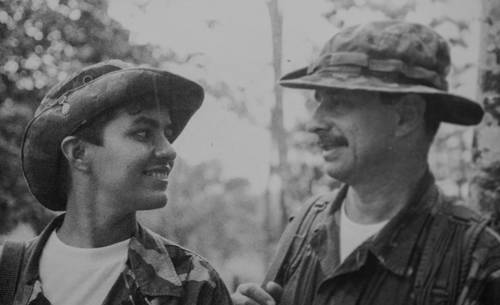Peoples Dispatch excerpt: In April 2022, the Chamber for the Recognition of Truth and Responsibility of the Special Jurisdiction for Peace (JEP) determined that the genocide perpetrated against the UP left more than 5,000 dead or disappeared. The JEP, which was established as a part of the 2016 peace agreements signed between the FARC and the government of former President Juan Manuel Santos, revealed that of the total of 5,733 victims, 4,616 were killed and 1,117 disappeared between 1984 and 2016.
COLOMBIA IS RESPONSIBLE FOR THE EXTERMINATION OF THE PATRIOTIC UNION POLITICAL PARTY
San José, Costa Rica, January 30, 2023
In the Judgment in the case of Members and Militants of the Unión Patriótica v. Colombia, notified today, the Inter-American Court of Human Rights declared that the State of Colombia is responsible for the human rights violations committed to the detriment of more than six thousand members and militants of the Unión Patriótica ("UP") political party from 1984 for more than twenty years.
The State partially acknowledged its international responsibility in this case. The Court valued this position as a positive contribution to the development of the process, to the validity of the principles that inspire the Convention and to the satisfaction of the reparation needs of the victims, but considered that there were still many elements in controversy with respect to the determination of the factual framework, the universe of victims and the violations.
The official summary of the Judgment is available here and the full text of the Judgment is available here.
The Court recalled that the UP was constituted as a political organization on May 28, 1985, as a result of a peace process between the National Secretariat of the Revolutionary Armed Forces of Colombia and the national government. As a consequence of its rapid rise in national politics and, especially, in some regions of traditional guerrilla presence, an alliance arose between paramilitary groups, with sectors of traditional politics, the security forces and business groups, to counteract the rise of the UP in the political arena. From then on, acts of violence against members, sympathizers and militants of the Patriotic Union began. The Court was able to prove that the systematic violence against members and militants of the Patriotic Union, which lasted for more than two decades and extended throughout almost the entire Colombian territory, manifested itself through acts of different nature such as forced disappearances, massacres, extrajudicial executions and murders, threats, attacks, various acts of stigmatization, improper prosecutions, torture, forced displacements, among others.
These acts were part of a systematic extermination plan against the Unión Patriótica political party, its members and militants, with the participation of state agents, and with the tolerance and acquiescence of the authorities, constituting a crime against humanity. At the same time, the investigations into these acts of violence were not effective and were characterized by high levels of impunity that operated as a form of tolerance on the part of the authorities.
Regarding the international responsibility of the State, the Court considered that in the determination of the attribution to the State of the facts that violated international obligations, there is a superimposition of direct responsibility arising from the direct participation of State agents and non-State actors, at different times of the acts of violence against the members and militants of the Patriotic Union, as well as from various mechanisms of tolerance, acquiescence and collaboration for these to happen.
On the other hand, the Court found that the State is responsible for the violation of the rights to freedom of expression, freedom of association and political rights to the detriment of the victims due to:
(a) their political activity that was hindered by both physical and symbolic violence against a party that was labeled as an "internal enemy";
(b) the actions and omissions to the duty of protection by the State created a climate of victimization and stigma against them;
c) the physical and psychological integrity of the members and militants of the UP due to the stigmatization created by their membership in that political group; and
d) the withdrawal of the legal status of the Patriotic Union, although this situation was later remedied by the Council of State.
In addition, the rights to recognition of legal personality, life, personal integrity, personal liberty, freedom of movement and residence, children's rights and the Inter-American Convention on Forced Disappearance of Persons were violated by the executions, disappearances, torture, arbitrary detentions, threats, harassment and displacement of members and militants of the Patriotic Union.
The Court also found that the right to honor and dignity was affected by the statements made by public officials against the members and militants of the Patriotic Union. The State, not only did not prevent attacks against the reputation and honor of the alleged victims, but, through its officials, and in particular its high authorities, contributed and participated directly in them, aggravating the situation of vulnerability in which they found themselves and generating a factor to promote attacks against them.
Regarding the rights to judicial guarantees, judicial protection and the duty to investigate acts of torture, the Court found that:
a) the absence of investigation and criminal prosecution of the acts of violence against the UP has prevented, so far, a differentiated analysis of the impact that these violations had on the different groups in vulnerable situations;
b) most of these recognized acts of violence have not reached a judicial definition within a reasonable time, and
c) the State violated the right to truth as an autonomous right.
Finally, the Court found that the State was responsible for a violation of the right to personal integrity to the detriment of the next of kin of the victims of forced disappearance and executions, who were identified by the Commission in its list of victims' next of kin.
Due to the violations declared in the Judgment, the Court ordered various measures of reparation:
(a) to initiate, promote, reopen and continue, within a period of no more than two years, and conclude, within a reasonable time and with the utmost diligence, the investigations, in order to establish the truth of the facts relating to serious human rights violations and determine any criminal responsibilities that may exist, and to remove all de facto and de jure obstacles that maintain the facts related to this case in impunity;
b) conduct a search to determine the whereabouts of the disappeared victims whose fate is still unknown;
c) provide medical, psychological, psychiatric or psychosocial treatment to the victims who so request;
d) publish and disseminate this Judgment and its official summary;
e) carry out a public act of acknowledgment of international responsibility;
f) establish a national day in commemoration of the victims of the Unión Patriótica and carry out activities for its dissemination, including in public schools and colleges;
g) build a monument in memory of the victims and the acts committed against the members, militants and sympathizers of the Unión Patriótica;
h) place plaques in at least five places or public spaces to commemorate the victims;
i) to elaborate and disseminate an audiovisual documentary on the violence and stigmatization against the Patriotic Union;
j) to carry out a national campaign in public media with the purpose of sensitizing the Colombian society regarding the violence, persecution and stigmatization to which the leaders, militants, members and relatives of the members of the Patriotic Union were subjected;
k) to hold academic forums in at least five public universities in different parts of the country on topics related to the present case;
l) to submit a report to the Court in which it agrees with the authorities of the Unión Patriótica on the aspects to be improved or strengthened in the existing protection mechanisms and how they will be implemented, in order to adequately guarantee the security and protection of leaders, members and militants of the Unión Patriótica, and
m) to pay the amounts established in the Judgment for compensation for material and non-material damages.
The composition of the Court for the issuance of this Judgment was as follows: Elizabeth Odio Benito, President (Costa Rica); Patricio Pazmiño Freire, Vice-President (Ecuador); Eduardo Ferrer Mac-Gregor Poisot, Judge (Mexico); Eugenio Raúl Zaffaroni, Judge (Argentina); and Ricardo C. Pérez Manrique, Judge (Uruguay).
Judge Humberto Antonio Sierra Porto, a Colombian national, did not participate in the processing of this case or in the deliberation and signing of this Judgment. Judge Eduardo Vio Grossi, for reasons of force majeure, did not participate in the processing of this case or in the deliberation and signing of the Judgment.
This press release was drafted by the Secretariat of the Inter-American Court of Human Rights and is the sole responsibility of the Secretariat.
For more information, please visit the Inter-American Court's website at www.corteidh.or.cr or send an email to Pablo Saavedra Alessandri, Secretary at corteidh@corteidh.or.cr. For the press office, please contact Matías Ponce at prensa@corteidh.or.cr.


